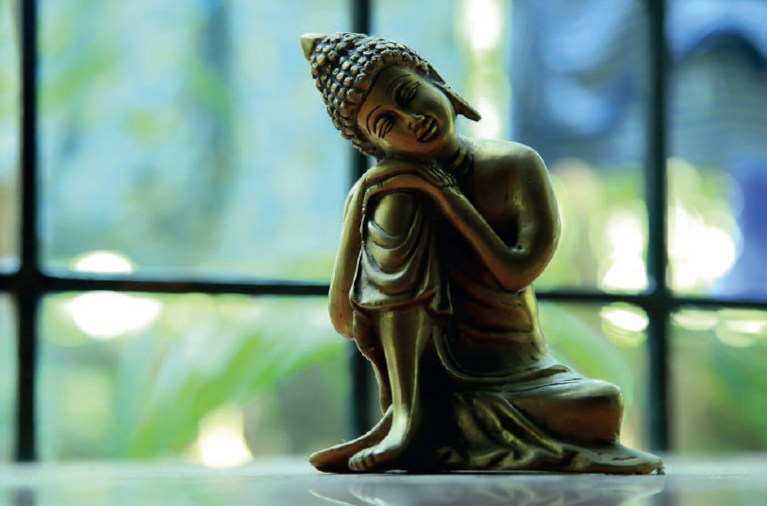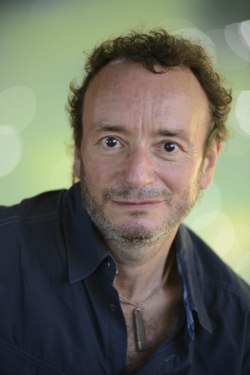Published by The Club of Rome in Enduring Peace in the Anthropocene, May 2024
A just resolution to the Israel/Palestine conflict requires acknowledging and honoring truths that are seemingly contradictory. Examples from other domains show how this can be accomplished and offer a potential pathway to an enduring, long-term peace.
Let us consider some facts of historical significance generally agreed to be unequivocally true:
In the sixth century BCE, a people who became known as the Jews were expelled from their homeland in Judah to exile in Babylon. After the Persians permitted their return, the Jews repopulated the region until being exiled again by the Romans in 69 CE. Since then, a powerful cohering tradition within the Jewish diaspora centered on the prospective return to Israel (Zion), a dream that was consummated by the United Nations declaration of Israel as a Jewish state in 1947. I can attest, as a Jewish child growing up in London, to hearing the solemn invocation “Next year in Jerusalem” uttered during the annual Passover Seder service—a supplication that had echoed through generations—and sensing its fruition through Israel’s existence.
Meanwhile, in the two millennia following their exile by the Romans, other populations, mostly Muslim and Arab, inhabited the region that became known as Palestine, calling it their home. After the fall of the Ottoman Empire in the aftermath of World War I, the British Empire took control of Palestine. The Balfour Declaration, a statement of British support for “the establishment of a national home for the Jewish people,” was proclaimed in 1917, in spite of the fact that 90 percent of Palestine’s inhabitants were non-Jews.
Who, one might ask, has the historic right to live there now: the Jews, for whom it represents an ancestral homeland, or the Arabs, for whom it also represents an ancestral homeland? Since both historical narratives speak the truth, the only pathway toward a just and enduring peace would be to honor them both. How might this be possible?
A similar set of antithetical narratives has arisen around other key aspects of the Israel/Palestine conflict. In the aftermath of the Holocaust—the systematic genocidal murder of six million Jews—the United Nations, driven by a sense of collective guilt, voted to partition the region into two independent states, one Palestinian Arab and one Jewish. The Arabs rejected this enforced expiation of a crime that was not theirs, declaring war on the newly formed state of Israel. Why should the inhabitants of Palestine be forced to make reparations for Europeans’ genocidal treatment of Jews? The birth of Israel, celebrated by Jews worldwide as a culmination of two millennia of collective longing, was correspondingly the initiation of the Nakba, the ongoing catastrophe that began by violently displacing 750,000 Palestinians from their homeland, imposing an exile that remains to this day.
The contradictory claims to moral righteousness and turpitude go on and on. While the Jews forcibly dispossessed Arabs in 1948, Arab nations expelled Jews who had lived in their lands for generations, frequently confiscating all their possessions. These Jews were welcomed by Israel, which declared a Law of Return allowing for the immigration of any Jewish family to Israel—a right of return that has been denied for the Palestinians driven out by the Israelis.
Since October 7, the conflicting moral interpretations have greatly intensified: the massacre by Hamas militants of over 1,100 people, mostly civilians, was the deadliest attack on Jews since the Holocaust. Israel’s ruthless response, resulting to date in the deaths of more than 34,000 Palestinians, around two-thirds of them women and children, is widely recognized as criminally disproportionate and has plausibly been prosecuted as genocide.
While these morally contrasting narratives both hold true, and their supporting evidence is readily available, most people engaging with this topic fervently repeat one set of shibboleths while refusing to acknowledge the other—as if adding to the decibels of one side will somehow drown the other into submission. Such a tactic might lead to short-term gains, but never to an enduring peace. For those who envision a long-term future where both Jews and Arabs can live together harmoniously in what both consider to be a Holy Land, what approach might offer a pathway forward? Let us begin to answer this question from a foundational perspective.
Holding and honoring conflicting truths
The dominant Western worldview arises from an ontology that takes an absolutist view of truth. If something is right, then it cannot be wrong. If it’s black, then it can’t be white. In ancient Greece, Parmenides first established the iron rule of systematic logic, which was further elaborated by the deductive reasoning of Aristotle to form a foundation for scientific thought. Alongside these developments, the religious absolutism of monotheism took root, claiming for the first time in the human experience that only one God existed, and all those who did not worship Him were sinners. Before the rise of monotheism, intolerance based on religious creed was virtually unknown.
This ontology, however, is not the only one available. Even among the Greeks there were those, such as Heraclitus, who claimed that “We both are and are not.” While systematic logic won out in the West, other cultural complexes such as Buddhism, Taoism, and many Indigenous traditions developed equally sophisticated conceptions of the universe that were more fluid. For example, the Huayan school of Buddhism, which flourished in Tang dynasty China over a thousand years ago, understood reality as an all-embracing web of causal relations between things. The Huayan philosophy emphasized that the significance of any object depends on how it’s approached, with the result that phenomena could be interpreted in multiple ways without one interpretation invalidating the other. In the words of an old, wise adage: “We don’t see things as they are, we see them as we are.”
 Credit: wilsan u, Unsplash.com
Credit: wilsan u, Unsplash.com
This approach, at odds with Aristotelian logic, re-emerged in Western thought in the twentieth century as physicists, grappling with the paradox of quantum mechanics, realized that subatomic entities may be either a wave or a particle depending on how they’re measured. More generally, the wide array of modern systems sciences—including such fields as complexity theory, chaos theory, systems biology, and network theory—recognizes that complex systems manifest multiple layers of interactivity. While certain principles may hold true throughout the system, different parts within the system may exhibit behaviors that appear contradictory to other parts, even while all are contributing to the integrity of the system as a whole. Accordingly, a healthy living system represents a state of integration which may be understood as unity incorporating manifold differentiation.
The embrace of complexity has shown up more recently in therapeutic psychology, with the widespread adoption of parts work, based on the recognition that people hold different parts within themselves, some of which may contradict each other causing inner conflict. As Walt Whitman famously declared: “I am large, I contain multitudes.” In particular, Internal Family Systems (IFS) is a transformative therapy that helps people heal by accessing and honoring their inner parts, some of which are wounded, protective, aggressive, or defensive. Recognizing that these parts are frequently at odds with each other, which causes internal suffering, IFS emphasizes the importance of a core Self in a person which, if accessed skillfully, can attend with love to each part and encourage healing—not by rejecting those parts but by allowing them to feel acknowledged and become integrated into the greater whole.
There is much that could be achieved by applying this wisdom to the political process. What kind of political discourse might arise with respect to Israel and Palestine if such an approach were taken?
An integrative pathway to peace
Comparable to the Self in IFS, there are overriding values shared by virtually all human beings that transcend the parochial in-group values dominating the current political debate. In the resounding words of the UN Declaration of Human Rights—proclaimed the year following Israel’s birth as a nation—“Recognition of the inherent dignity and of the equal and inalienable rights of all members of the human family is the foundation of freedom, justice and peace in the world.” Acknowledging that “disregard and contempt for human rights have resulted in barbarous acts which have outraged the conscience of mankind,” the Declaration calls for “a world in which human beings shall enjoy freedom of speech and belief and freedom from fear and want … as the highest aspiration of the common people.”
Tragically, since 1948, Israeli forces have trampled on these rights of Palestinians, while many Arab nations and political groups have similarly flouted them. A few days after the October 7 massacre by Hamas and the initiation of Israel’s criminal collective punishment, author and social activist Naomi Klein called for a global response “rooted in values that side with the child over the gun every single time, no matter whose gun and no matter whose child.” This is the kind of deeply humanitarian orientation that is required for an integrative pathway to peace.
We must recognize that a humane response to the enormity of the Holocaust did not have to lead to an Israeli ethno-state. As essayist Pankaj Mishra has demonstrated, many Jewish leaders surviving the Holocaust took the phrase “never again” to mean “Never again for any persecuted minority anywhere in the world” rather than “Never again for the Jews.” Nonetheless, we must appreciate that Israelis today continue to live under a constant existential threat with powerful enemies repeatedly calling for their annihilation. The Israeli political leadership, however, has thrived on weaponizing fear, using it to motivate fervid allegiance to Zionism in many Jews around the world, and currently fomenting a worldwide conflation of anti-Zionist protests with anti-Semitism, in spite of the fact that many Jews join in the public outrage at Israel’s brutal campaign.
When we engage in political discourse, we must choose our words carefully to avoid adding to the polarized grandstanding dominating the media. As journalist Judith Levine has pointed out, the mindless use of blanket terms such as “pro-Israel” or “pro-Palestinian” only serves to smother the deeper issues of human rights under a cacophony of tribal rivalry.
We must call urgently for a ceasefire in Gaza and a return by Hamas of all hostages. At the same time, we must recognize the deep power imbalance currently existing between the state of Israel and the Palestinians living in the occupied territories, and demand the end of Israel’s abuse of its military superiority. We must call for an end to the illegal Jewish settlements in the West Bank, and to the fanatical Jewish paramilitary gangs currently terrorizing Palestinian villagers with the tacit—and sometimes open—support of Israeli armed forces. And when the current hurricane of violence subsides, we must call for a Truth and Reconciliation Commission, modeled on exemplars from South Africa, Rwanda, and Canada, and employing principles of restorative justice, that could facilitate a new generation to face into and move on from the current round of anguish toward a healed society.
Above all, an integrative pathway to peace calls for the boldness to imagine a transformed future for this divided region and to support those groups, currently nearly drowned out by the polarized voices on both sides, taking the first courageous steps in that direction. The Standing Together movement, which mobilizes Jewish and Palestinian citizens of Israel in pursuit of peace, equality, and justice, envisions building a shared home for all through rejecting hatred and choosing compassion. Combatants for Peace is a grassroots nonviolence movement based in Israel and Palestine—the only peace movement in the world founded by former fighters on both sides of an active conflict. The Holy Land Trust, a Palestinian organization dedicated to fostering peace, justice, and understanding in the Holy Land, is committed to nonviolent activism, along with personal and spiritual transformation arising from honoring the dignity and equal rights of all peoples.
Beyond the horizon, an integrative path has the potential to lead to political solutions that are currently almost unimaginable. A movement of Israelis and Palestinians called A Land for All, acknowledging that both peoples belong to the same ancestral land, envisages a shared homeland encompassing two sovereign states. Their proposal calls for two democratic states based on pre-1967 borders, with citizens of both states given the right to move and live freely in all parts of the homeland. With Jerusalem as a shared capital, both states would be responsible for the security of their residents, would enter into a mutual defense treaty against external threats, and would share a Human Rights Court empowered to rule on alleged violations of rights by non-citizen residents of either country. While current political and cultural conditions render such an arrangement unworkable on many counts, this is the kind of integrative visionary thinking that will be required to enable an enduring long-term peace for a region that has suffered too much torment throughout its embattled history.






